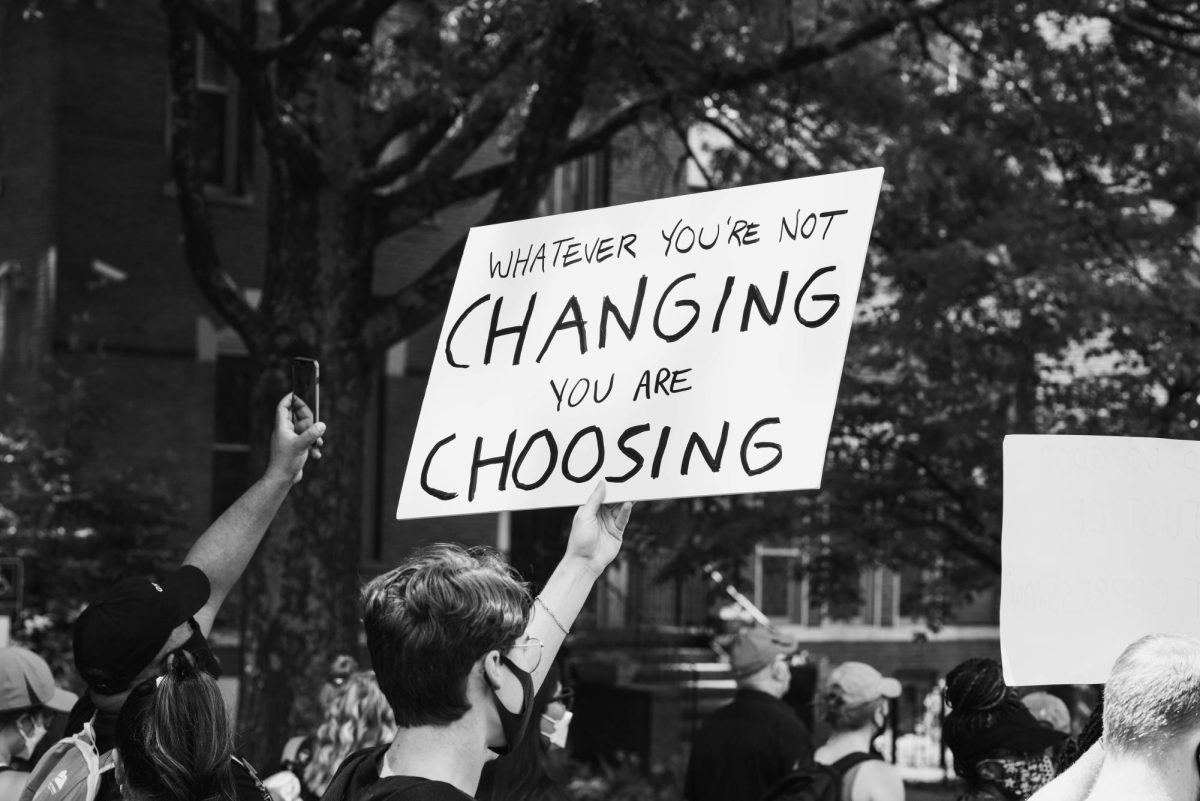“How dismal it is to see present day Americans yearning for the very orthodoxy that their country was founded to escape” – Christopher Hitchens
The quote above can be interpreted by anyone and deployed against any enemy. Some of you who read it may be inclined to think the “present day Americans” are the left-wing ideologues, or perhaps you find it better to apply the term to those on the right side of the political aisle. However, applying it only to opposition is both lazy and highly misleading. One must consider if such a clean ideological divide even exists anymore.
If you believe in the binary divide, you will find yourself opposed to one side completely. If you think circumstances are more complex than that, progress begins. However, one must also be cognizant that an opposition to both sides is an opposition to all—even those who claim to be in service of the same cause. These are indeed turbulent times that we live in, and what we need are contrarians, dissidents and people who are not afraid to break molds—people who are unafraid to exercise their natural rights.
Many common tautologies can be dispelled by reading a short book written by the man who uttered the quote above. “Letters to a Young Contrarian” by Christopher Hitchens is a wonderful primer on what exactly it means to be a contrarian, but more importantly, what contrarians mean to society.
This is not a book review. After reading it, however, I came away feeling that each sentence held practical wisdom. Everything in the book is applicable whether it is life, politics, literature, humor or history. Hitchens mentors the aspiring dissidents, the ones who feel they and others deserve better than the status quo, and as he points out in the book, it is these people who we owe the world to.
One common fallacy Hitchens dispels is that centrism is preferable to placing yourself on any side. This is directed at those who blindly suggest the middle is the key to high-minded intellectualism. By no means are commonalities insignificant—when they come our way we should not take them for granted—but what happens when your centrism is not really moderate at all?
In the book, Hitchens writes:
“One admires the Greek style for its quiet emphasis on symmetry and balance, but then what if the balance is tipped and the time disjointed? Of what use is the ‘moderate’ then? The Gray uniforms at Gettysburg might not have been deployed, or not have been defeated, if it were not for fanatics and absolutists like John Brown, who regarded compromise as disgrace. No doubt you can think of your own examples.”
There is an obvious problem, not with the quote itself, but with its potential reception. All of us who pay attention to world affairs can imagine this quote being an excuse for anything that approximates a tipped balance and disjointed time. In fact, the worst cults are the ones who profess to be the right way over all else in times of social turmoil (and it happens to be these same groups who do the most tipping).
However, at the risk of irony, where is the middle spot? I’m not sure there is one. Instead of thinking in the middle though, exist away from the spectrum—regard only how you think as the paramount virtue, and where you end up will work itself out. Because it is very rare that someone constantly thinking for themselves will resort to platitudes and cliches and weak worn-out centrism.
Free yourself—to whatever extent possible—from the mental asphyxiation of dogma. It is true that people who attempt to live as a contrarian quickly find themselves immersed in an alarming amount of guilt and regret, aimlessness and despair. It is rapidly realized, however, that living in harmony with people of reason and morality and fairness and truth is not a majority, but a potent minority; a relationship worth clinging to. And sometimes this, as it often does, means taking to the powers of disputation and debate. In other words, “in order to be able to think, you have to risk being offensive.”
I believe that you get the gist. The ways of virtuous thinking are almost impossible to master, but it is better this way. Once you believe you are too intelligent, it is probably too late.
I’d like to end this important discussion about “centrism” with another quote from Hitchens:
“If you care about the points of agreement and civility, then, you had better be well-equipped with points of argument and combativity, because if you are not then the ‘center’ will be occupied and defined without your having helped to decide it, or determine what and where it is.”
Thinking about it, much of this appears to be common sense; but as the adage goes: Common sense is a lot less common.
Hitchens’ book also forced me to think deeply about what is occurring in the world. The birth of larger-scale war seems more likely by the day (I was accused of being a fear monger for suggesting this earlier), though not guaranteed; and the overall political and social tension of the world feels incredibly overwhelming. Oftentimes, people suggest that I relax my concern for these affairs. While there is something astonishingly stoic about this basic wisdom, these people, in exchange, offer little insight on how to tackle these issues, and the problems we face do not simply disappear with apathy. Moreover, it is impossible to disengage from them, and it is important that we don’t. It is only vital that we forgo the factors that condition our minds to a narrow side when thinking about them.
I suppose the latter point is the whole purpose of this article. Learning (an endless endeavor) to be a contrarian isn’t something done for glamor. As Hitchens says, “the noble title of ‘dissident’ must be earned rather than claimed; it connotes sacrifice and risk rather than mere disagreement.” It comes at the cost of basic comforts and ignorance, which will undoubtedly isolate you. But no other way is worth it. The only option is to think for yourself or to have someone think for you.
Lastly, on the question of intellectuals, am I suggesting that none of them are to be trusted? No, I’m not. Such an assertion would be incredibly arrogant. Of course, one should consult the intellectuals, but one should unalterably avoid thinking vicariously through them. It is no better a solution than if you learned to think on your own, devoting the proper time and attention. The precondition for the allowance of authority is always trust, so don’t let your trust be in vain. Don’t let yourself fall, no matter the risk. And remember, a slave to even a good cause remains a slave.
These are what I took to be the main points of the book, and I could not help but think they were prescient to the situation we currently live in.
Peace be with you all.








